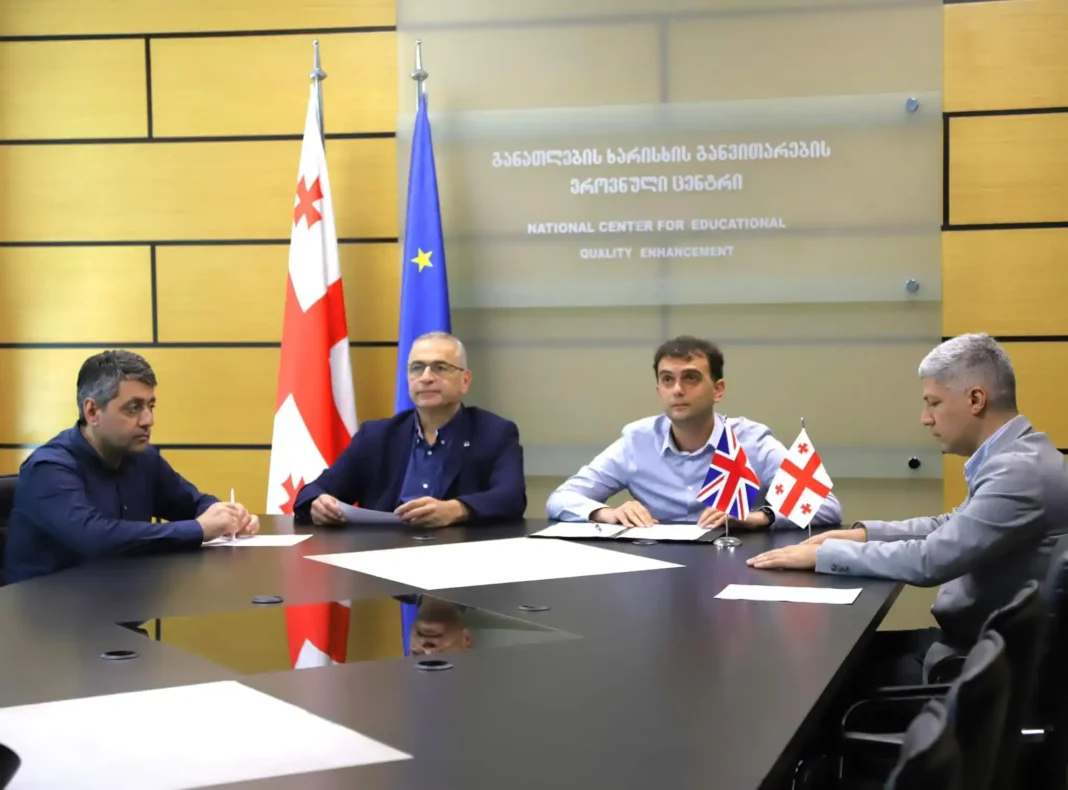The National Centre for Development of Quality in Education of Georgia have signs the Memorandum of Cooperation with the Quality Assurance Agency for Higher Education of Great Britain. This is aimed to improve the standards and practices of the cooperation in the field of education as well.
The first deputy minister of education, science and youth of Georgia, Aleksandre Tsuladze attended the signing ceremony of the memorandum, and his participation was an important message for the parties involved in the memorandum that the ministry is ready to support the further deepening and expansion of cooperation between the relevant ministries and agencies of Georgia and Great Britain.
Notably, the UK Higher Education Quality Assurance Agency, established in 1997 is one of the world’s leading agencies focused on providing high-quality higher education for students both in the UK and internationally. The agency cooperates with various stakeholders to support and improve the educational standards of higher educational institutions.
The fact that both agencies are members of the International Network of Agencies for Quality Assurance in Higher Education (INQAAHE) and the European Association for Quality Assurance in Higher Education (ENQA) provides a solid basis for cooperation.
It is worth noting that within the framework of this agreement both agencies have undertaken to share appropriate information about the external quality assurance systems and procedures established by the legislation of the respective countries.
To strengthen the international dimension of the evaluation processes, the National Center for the Development of Quality in Education and the Quality Assurance Agency for Higher Education (QAA) of Great Britain have agreed to exchange expert evaluators from each agency’s expert base to strengthen the international dimension of the evaluation process. This exchange of industry experts will create new perspectives and valuable experience in the quality assurance process of both countries.
The memorandum further creates an opportunity for cooperation in the context of projects and activities useful for both agencies in many directions, such as the development of transnational education quality assurance mechanisms, promotion of international student mobility, research of important issues in the context of education quality development, etc.



